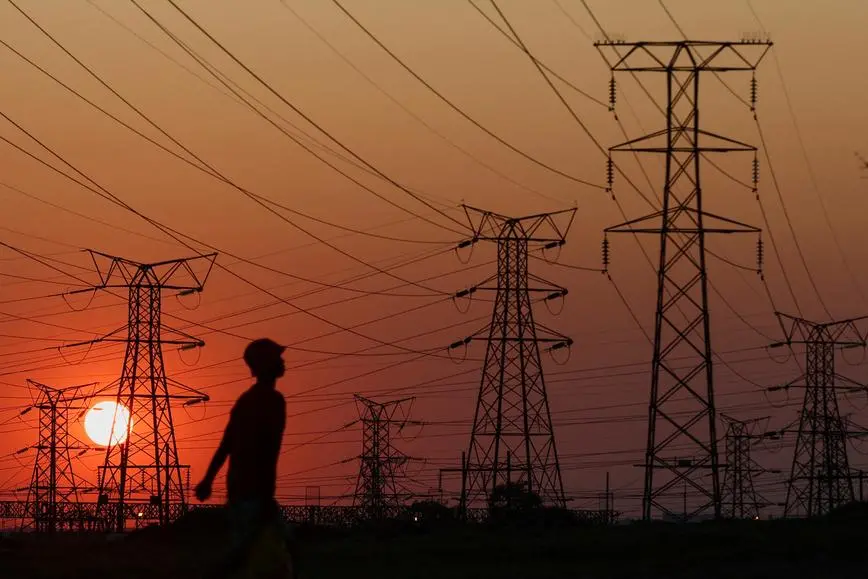PHOTO
South Africa’s state hospitals have spent approximately $38 million on diesel to keep the lights on amid the load-shedding crisis in 11 months.
The country’s energy authority Eskom has been faced with frequent blackouts and disrupted the lives of many South Africans, including businesses.
South Africa has experienced load-shedding since 2007, but the energy crisis has reached a critical stage with the state’s President Cyril Ramaphosa declaring a state of disaster to try and deal with the crippling electricity shortages.
The healthcare sector in the country is also feeling the heat, with blackouts occurring every day.
Read: S. Africa power outages strain morguesSouth African MP Philippus Adriaan van Staden stated the country’s Health Minister Dr Joe Phaahla revealed that hospitals spend millions on generators.
With the recurrent power cuts at state and provincial hospitals, Staden had asked Dr Phaahla how much has been spent on diesel for generators by each hospital in each province during the period of April 1, 2022, up to February 28, 2023.
Staden also inquired whether the generators at all hospitals across South Africa were in good condition.
Diesel consumption breakdownIn his reply, Dr Phaahla gave a breakdown of how much each of South Africa’s nine provinces has spent on diesel consumption when using generators:KwaZulu-Natal - R178.39 million ($9.8 million)Gauteng - R131.36 million ($7.2 million)Western Cape - R102.68 million ($5.6 million)Eastern Cape - R81.13 million ($4.4 million)Limpopo - R57.66 million ($3.1 million)Mpumalanga - R44.66 million ($2.4 million)North West - R40.49 million ($2.2 million)Northern Cape - R28.3 million ($1.5 million)Free State - R21.26 million ($1.1 million)Dr Phaahla insisted that the generators were in working condition.“The country’s public health-care services already have a backlog of 175000 medical procedures and legal-medical claims amounting to R125 billion ($6.8 billion),” said Staden.“And in addition to that, astronomical amounts must be spent on generating electricity. These factors make it clear that now is not the right time to send the National Health Insurance Bill to the South Africa’s National Assembly for adoption. The Bill must be placed on ice until the healthcare sector has stabilised and can function effectively,” said.“With just 76 state hospitals and clinics out of 213 currently being exempt from load shedding, the ongoing power crisis affecting healthcare institutions will only be exacerbated by winter already knocking at the door,” added Staden.
Lack of proper managementStaden strongly believes that South Africa is experiencing issues such as load shedding because the infrastructure in the country has collapsed with a lack of proper management in the last 29 years.
Read: South Africa still groping in the darkHe believes corruption, mismanagement and maladministration were the order of the day.“Seeing as the ongoing Eskom crisis has already forced the country to its knees, now is not the time to try and steamroller through ANC policy like the NHI in parliament,” declared Staden.“Instead, plans must be drawn up to enable the public healthcare sector to overcome the current power crisis. It is time to oust the ANC government from power. Next year's elections offer the perfect opportunity to do so. South Africans deserve so much better than the current ANC government,” he further said.
Meanwhile, Dr Phaahla ordered South Africa’s Health Director-General Sandile Buthelezi to set up a meeting with Eskom to look for solutions to mitigate load-shedding.“The first engagement took place on September 22, 2022. The meetings with Eskom are held regularly to seek more exemptions for healthcare facilities,” revealed Dr Phaahla.“There are further ongoing engagements with the department of co-operative governance and traditional affairs and various municipalities regarding additional exemptions for private and public healthcare facilities from the grid,” he added.
It is also worth noting that South Africa’s President Cyril Ramaphosa informed the country’s National Council of Provinces last month that the government is working on exempting critical infrastructure, especially hospitals, from load-shedding.
© Copyright 2022 Nation Media Group. All Rights Reserved. Provided by SyndiGate Media Inc. (Syndigate.info).





















